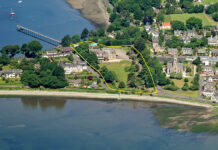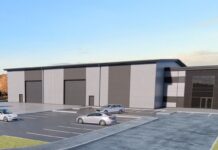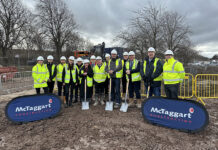
NEW research has found that building tender prices in Scotland rose by 1% in Q3 compared with the previous quarter, and 5% from Q3, 2022.
The findings were revealed by the newly formed BCIS Scottish Tender Price Assessment Panel (TPAP).
Established by the Building Cost Information Service (BCIS) in response to requests from subscribers, the purpose is to provide an estimate of tender price movement in Scotland. It is comprised of cost consultants from firms involved in multiple construction tenders across the country.
Tender prices are defined as trends in contractors’ pricing levels in accepted tenders at the commit to construct stage.
The panel reported that tender prices in Scotland increased by an average of 1% between Q2 and Q3, with a range of responses between 0.5% and 1.5%. On an annual basis, panellists agreed a consensus increase of 5%, with a range between 3% and 8.5%.
Karl Horton, chief data officer at BCIS, said, “After requests from subscribers to set up a Scottish panel, I’m delighted that we have the first set of results, which will help us to understand the economic factors that are currently affecting tender prices in Scotland. While there are issues that are UK-wide, and in some cases global, with the supply of materials, energy prices, and shifting legislation and regulations around safety and decarbonisation of the built environment, there are also factors that are particularly pertinent to projects going out to tender in Scotland.
“We are hugely grateful to the members of the panel, who are sharing their time and experiences with us, and hope that the knowledge and data coming out of the survey and panel discussions will be informative and useful for all of our subscribers who are working on projects in Scotland.”
The formation of the STPAP has been welcomed by Scottish Futures Trust. Senior associate director Paul Dodd added, “Inflation continues to provide a significant challenge to industry and clients within Scotland’s construction sector. We welcome BCIS’s commitment to organise the Tender Price Assessment Panel for Scotland, that will support greater collaboration, insights and consensus on tender price inflation. The panel’s ability to develop greater insights and knowledge sharing on the factors affecting inflation will support the construction sector to manage the impact of inflation and deliver improved outcomes.”
In Q3, underlying costs of labour and material, as measured by the BCIS General Building Cost Index, rose by 2% compared with the previous quarter and by 2.7% compared with the same period 12 months ago.
The TPAP reported average overheads and profit, as a percentage of contract sums, of 7% in Q3, with the range of responses between 5% and 10%.
The panel also reported on factors impacting tender prices in Scotland, including differential movement between regions, between building and mechanical and electrical (M&E) work, and on the sharing of risk between clients and contractors.








